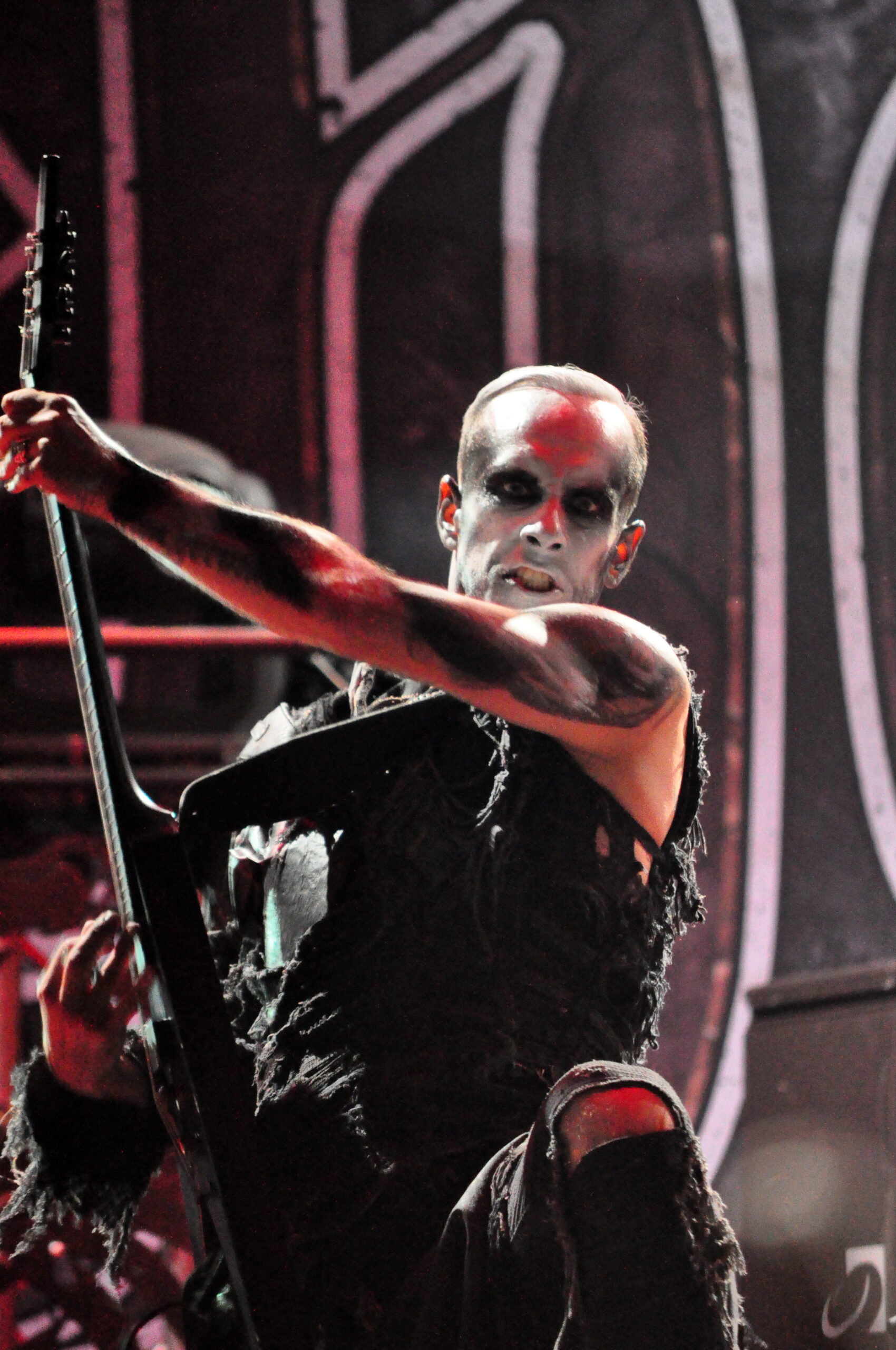The Quietus recently caught up with Behemoth vocalist/guitarist Adam ‘Nergal’ Darski to talk about the band’s new album ‘The Satanist’ and to gain further insight on his opinion of the current extreme metal scene. A couple of excerpts from the chat follow below.
Nergal said that although he was extremely proud of ‘The Satanist,’ he would leave it up to fans to make comparisons between it and the rest of the band’s discography: “You probably talk to artists every day that say, ‘Yeah, this album is our best, so on so on,’ so I’m happy to say that I’ll be original here, and say that, no, this is not our best record yet, because that’s not for me to judge.”
He continued: “Some people like ‘Demigod’ over anything else, some say ‘Evangelion’ was our best, but people have their own opinions. To me, the bottom line is that ‘The Satanist’ is the most sincere record we’ve ever done.”
Nergal argued that Behemoth had achieved what many modern day extreme metal bands struggle to do, create a unique and very extreme record: “It’s a very organic and very natural album in many ways, and it’s also super dangerous. It’s probably the album that we’re the most satisfied with, which is a unique feat for most artists; usually they’re unsatisfied with themselves. It may be an oxymoron or whatever, but you’re actually talking to a happy artist here! It’s a great record. I love it. It’s not arrogance, it’s passion and it’s love for my own creation and a full acceptance of who we are in our nature.”
In a recent interview with Ghost Cult Magazine, Nergal said that many modern day extreme metal bands weren’t actually extreme and had become too predictable by striving for perfection in the studio: “Too many bands are chasing this and the scene is becoming like the ‘X-Factor’ for black metal, he claimed. “There is no danger and unpredictability anymore.”
In the interview with The Quietus, Nergal said he hoped ‘The Satanist’ would separate Behemoth from the rest of the bands in the extreme metal genre: “The paradox is that the average extreme metal band these days is just another friendly band, which actually pisses me off, because that’s not how ‘extreme metal’ — black metal, death metal — was meant to be. This is why I don’t listen to them.”
However, Nergal did admit he had exceptions: “If I want to listen to some extreme metal, I go to the niche of the genre where bands don’t give a f**k because there’s no money and no business involved, there is no compromise.”
He said he adopted the same uncompromising approach while writing ‘The Satanist’: “I’m very much inspired by bands that don’t give a f**k, so you could also call ‘The Satanist’ an ‘I don’t give a f**k’ album! What I’m missing with these ‘extreme metal’ bands is the danger factor in these bands; they try to be friends with everyone, they play blasts all over the place, playing blasts for 45 minutes is just dull, it’s boring.”
‘The Satanist,’ Neral claimed, was the opposite: “’The Satanist’ is about dynamics, and it’s a very diverse record. On one hand, you can say that it’s totally the most sinister album that we’ve ever put out, but at the same time, it’s flirting with genres. There’s a lot of traditional stuff going on, there’s classical hard rock, you can hear it in the leads and some of the riffing and the grooves. It’s not a typical death metal record. I like to think of this album as something very unique. So on one hand, yes, we are part of the genre, we are an integral part of the black metal tradition, and we know where we come from, we have so much respect for our roots, but on the other hand, it’s more than that…”
Nergal also discussed what it felt like to be a mainstream celebrity in Poland: “I want to go beyond this heavy metal genre. I know there’s kids that get confused when they see a guy that they look up to and who wears makeup and is this and that in videos and see him in ‘The Voice Of Poland’ jury or in the movie I’ve just started, which was a comedy about Nazis called ‘Abassada’ (it was all over cinemas here, and I was one of the main characters), and they may get confused but that’s what I’m all about, confusing people. If they want to define me and have me for themselves, they can sleep well because they will never have that. I won’t be defined. I believe in the fact that human beings are hypercomplex individuals. The fact that I’m a heavy metal musician doesn’t make me go this one and only way; I’m there to be on this path and simultaneously be beyond it. I dwell in several different dimensions, some of them may look weird to you, some may seem to exclude one another, but for me, they do not. To me they complete the full picture of complexity that is this duality of my nature.”


